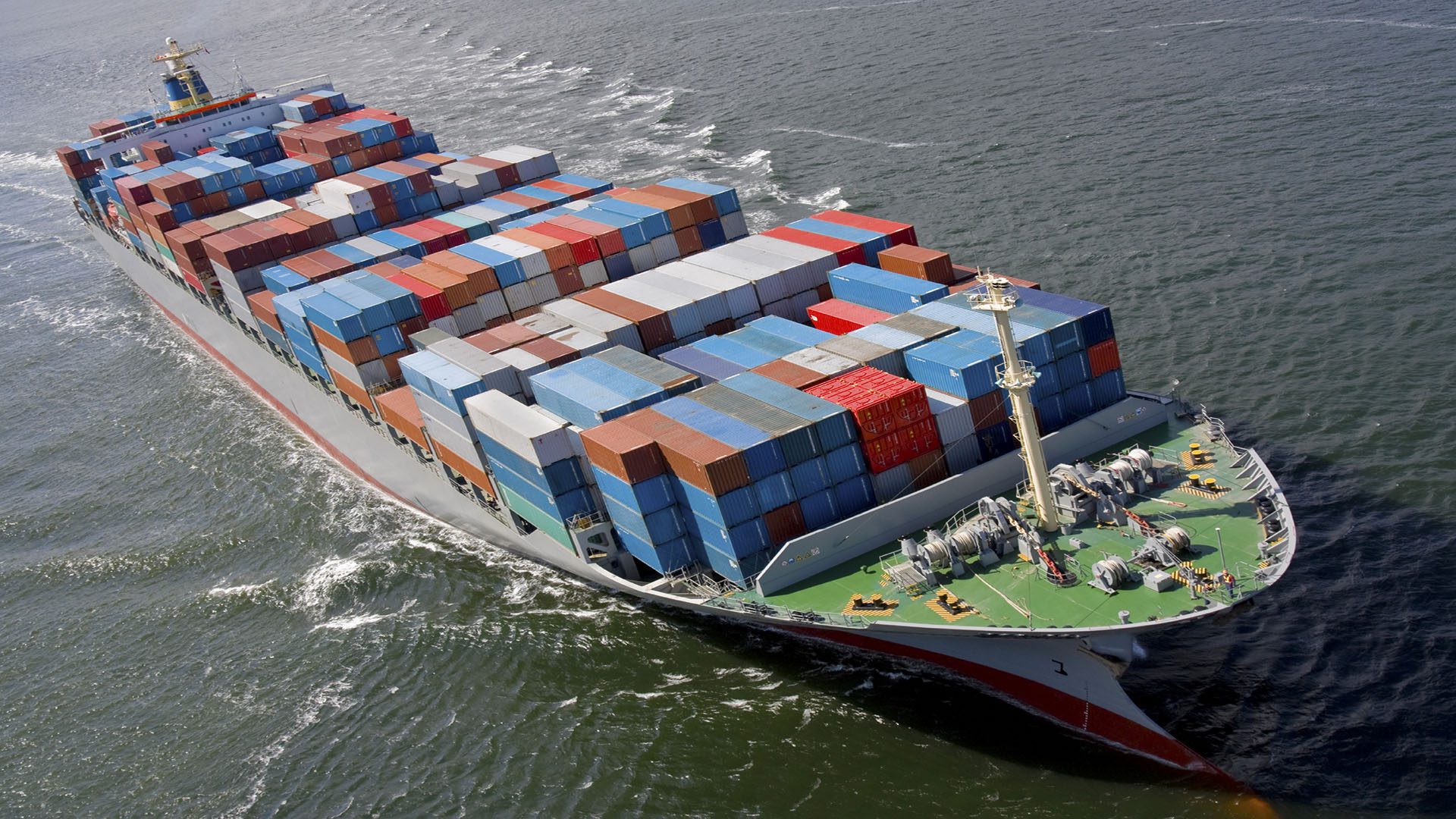
Bulk Carriers
Cargo claims are the most common and costly category of P&I claims. Our statistics show that 20% of all insured bulk and general cargo vessels suffer a cargo claim a year.
Bulker Focus
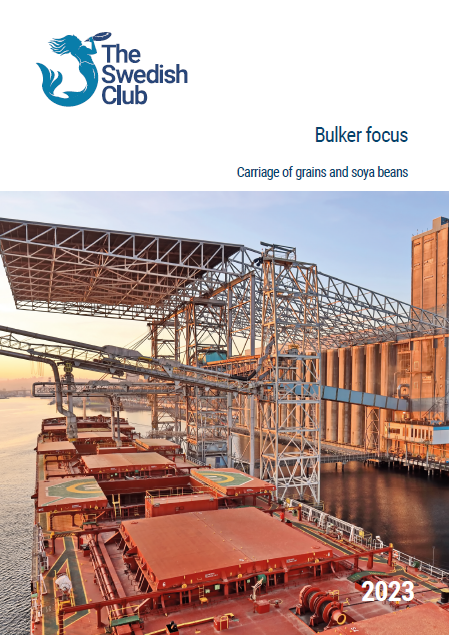
Bulker focus: Carriage of grains and soya beans
In this guide we focus on cargo claims in relation to grains and soya beans. To be included in the statistics the claims must have generated a cost of at least USD 5,000 and have been made between 2018 and 2022.
Cargo Advice
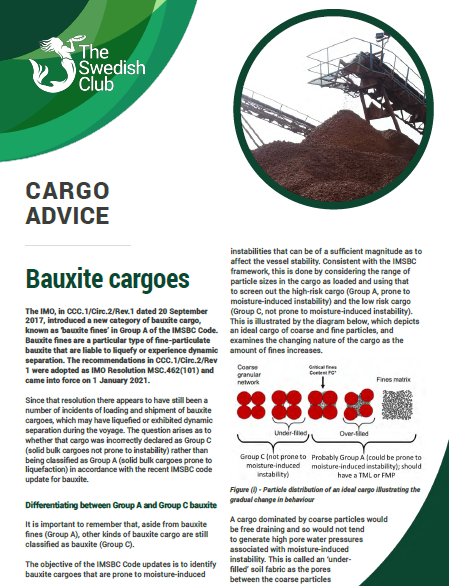
Bauxite
The IMO, in CCC.1/Circ.2/Rev.1 dated 20 September 2017, introduced a new category of bauxite cargo, known as ‘bauxite fines’ in Group A of the IMSBC Code. Bauxite fines are a particular type of fine-particulate bauxite that are liable to liquefy or experience dynamic separation. The recommendations in CCC.1/Circ.2/Rev 1 were adopted as IMO Resolution MSC.462(101) and came into force on 1 January 2021.
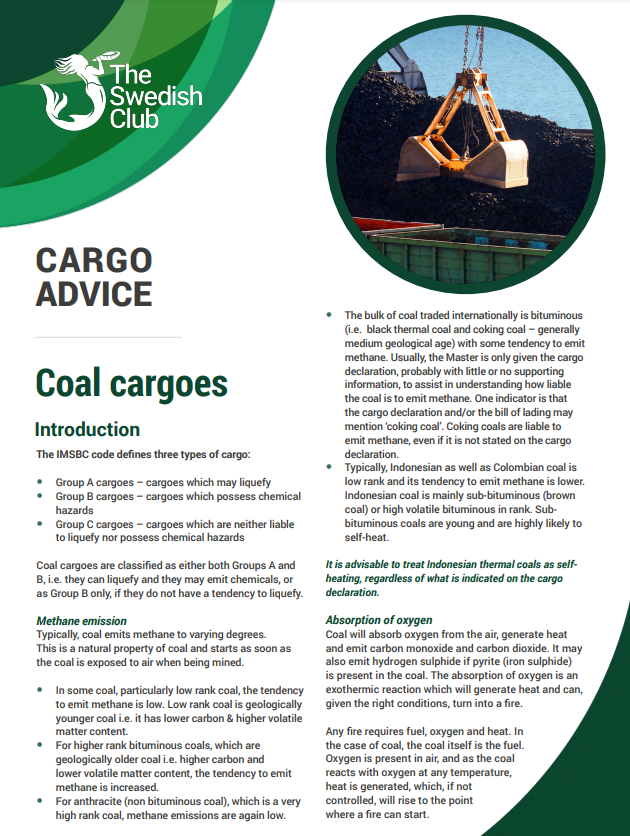
Coal
The IMSBC code defines three types of cargo: group A cargoes – cargoes which may liquefy, group B cargoes – cargoes which possess chemical hazards and group C cargoes – cargoes that are neither liable to liquefy nor possess chemical hazards. Coal cargoes are classified as either both Groups A and B, i.e. they can liquefy and they may emit chemicals, or as Group B only, if they do not have a tendency to liquefy.
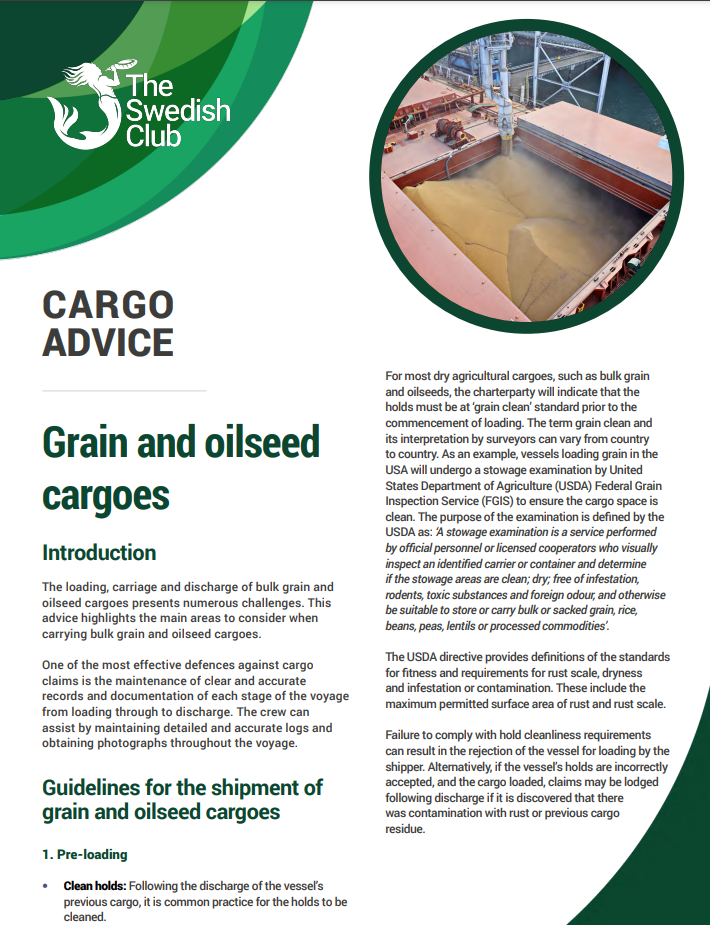
Grain and oilseeds
The loading, carriage and discharge of bulk grain and oilseed cargoes present numerous challenges. This advice highlights the main areas to consider when carrying bulk grain and oilseed cargoes. One of the most effective defences against cargo claims is the maintenance of clear and accurate records and documentation of each stage of the voyage from loading through to discharge. The crew can assist by maintaining detailed and accurate logs and obtaining photographs throughout the voyage
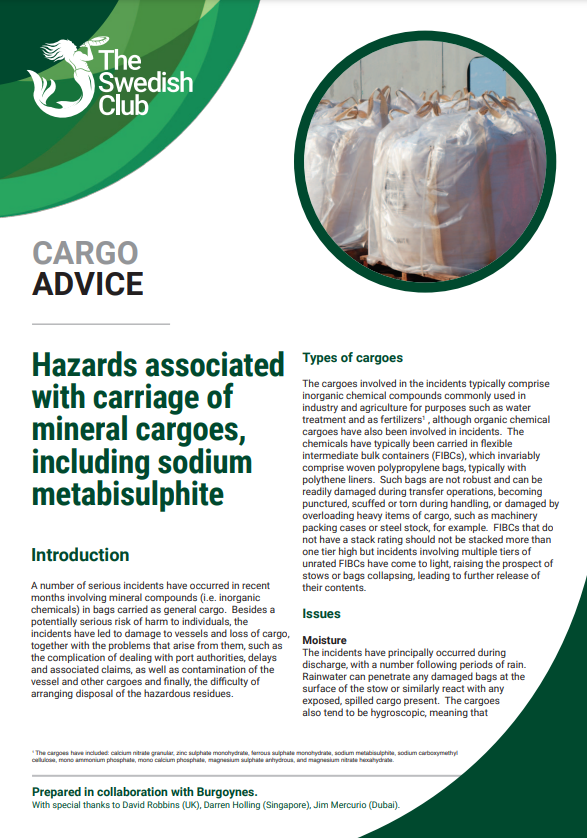
Mineral cargoes
A number of serious incidents have occurred in recent months involving mineral compounds (i.e. inorganic chemicals) in bags carried as general cargo. Besides a potentially serious risk of harm to individuals, the incidents have led to damage to vessels and loss of cargo, together with the problems that arise from them, such as the complication of dealing with port authorities, delays and associated claims, as well as contamination of the vessel and other cargoes and finally, the difficulty of arranging disposal of the hazardous residues
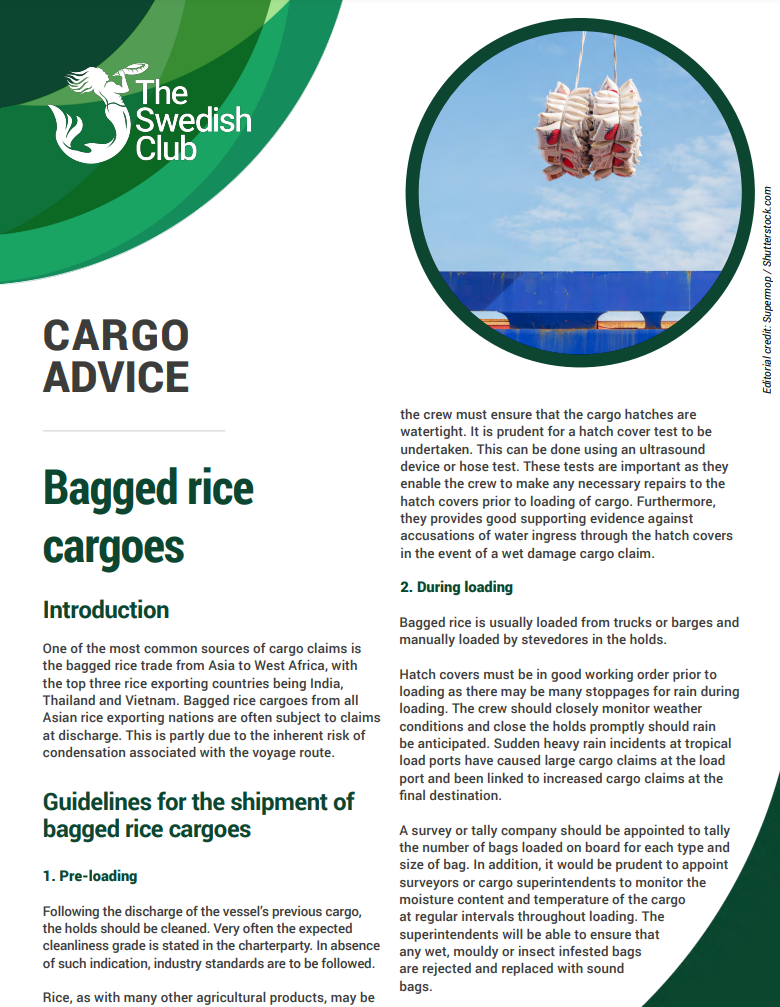
Rice
One of the most common sources of cargo claims is the bagged rice trade from Asia to West Africa. The top three rice exporters are India, Thailand and Vietnam. Bagged rice cargoes from all Asian rice exporting nations are often subject to claims at discharge. This is partly due to the inherent risk of condensation associated with the voyage route.
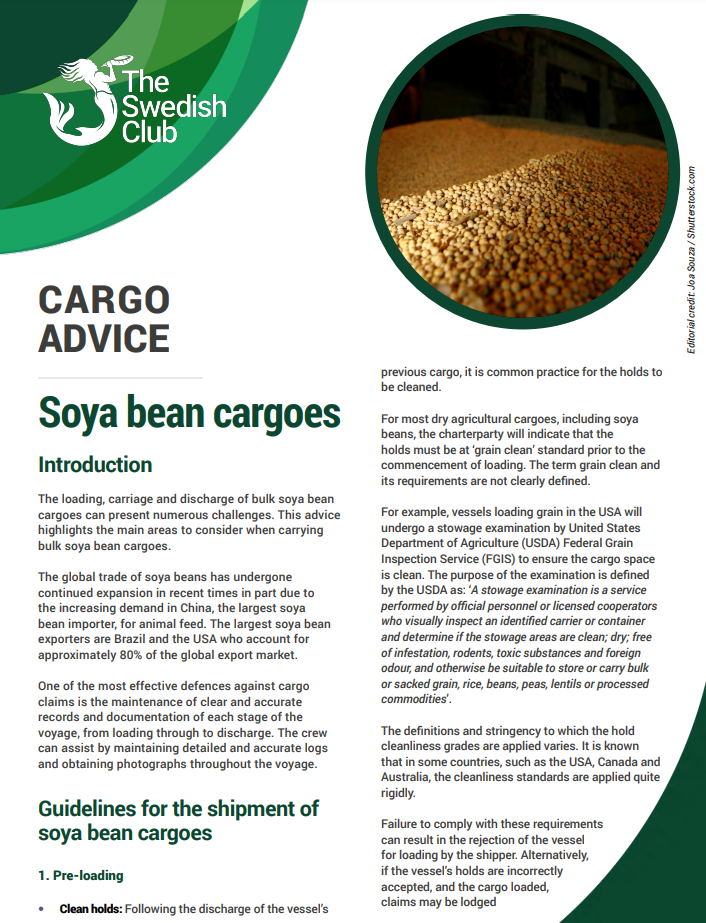
Soya Beans
The loading, carriage and discharge of bulk soya bean cargoes can present numerous challenges. This advice highlights the main areas to consider when carrying bulk soya bean cargoes. The global trade of soya beans has undergone continued expansion in recent times in part due to the increasing demand in China, the largest soya bean importer, for animal feed. The largest soya bean exporters are Brazil and the USA who account for approximately 80% of the global export market.
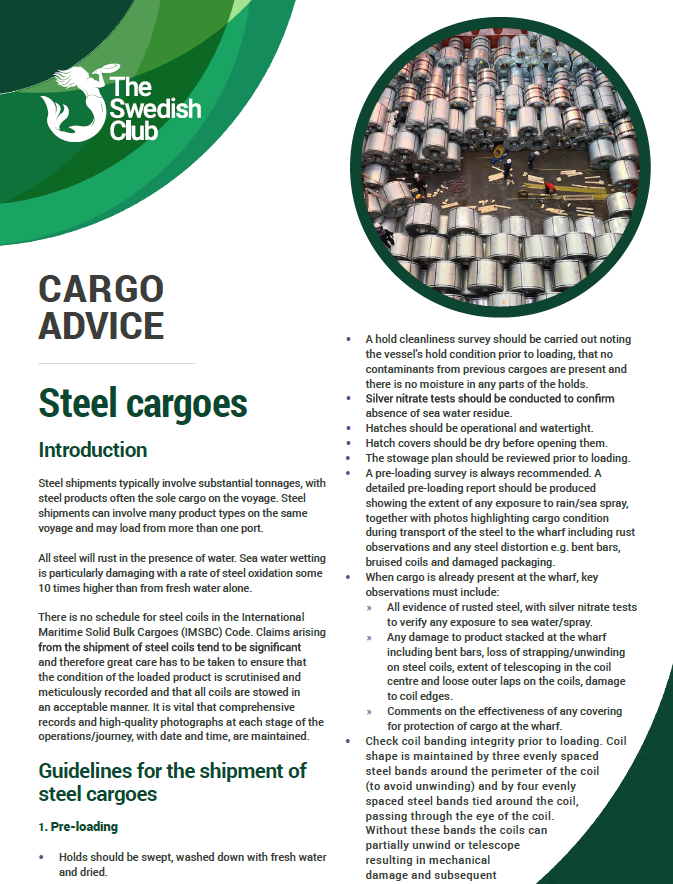
Steel
Steel shipments typically involve substantial tonnages, with steel products often the sole cargo on the voyage. Steel shipments can involve a multiplicity of product types on the same voyage and may load from more than one port. All steel will rust in the presence of water. Seawater wetting is particularly damaging with a rate of steel oxidation some 10 times higher than from freshwater alone.
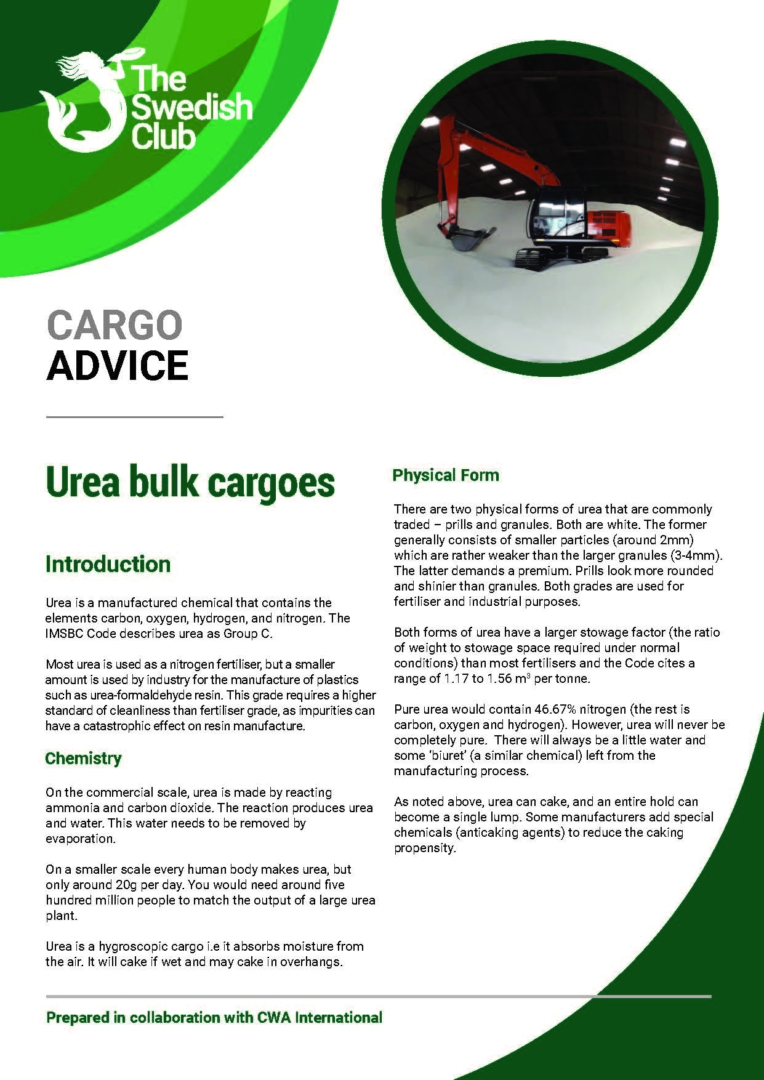
Urea
Urea is a manufactured chemical that contains the elements carbon, oxygen, hydrogen, and nitrogen. The IMSBC Code describes urea as Group C. Most urea is used as a nitrogen fertiliser, but a smaller amount is used by industry for the manufacture of plastics such as urea-formaldehyde resin. This grade requires a higher standard of cleanliness than fertiliser grade, as impurities can have a catastrophic effect on resin manufacture.
Practical Guides
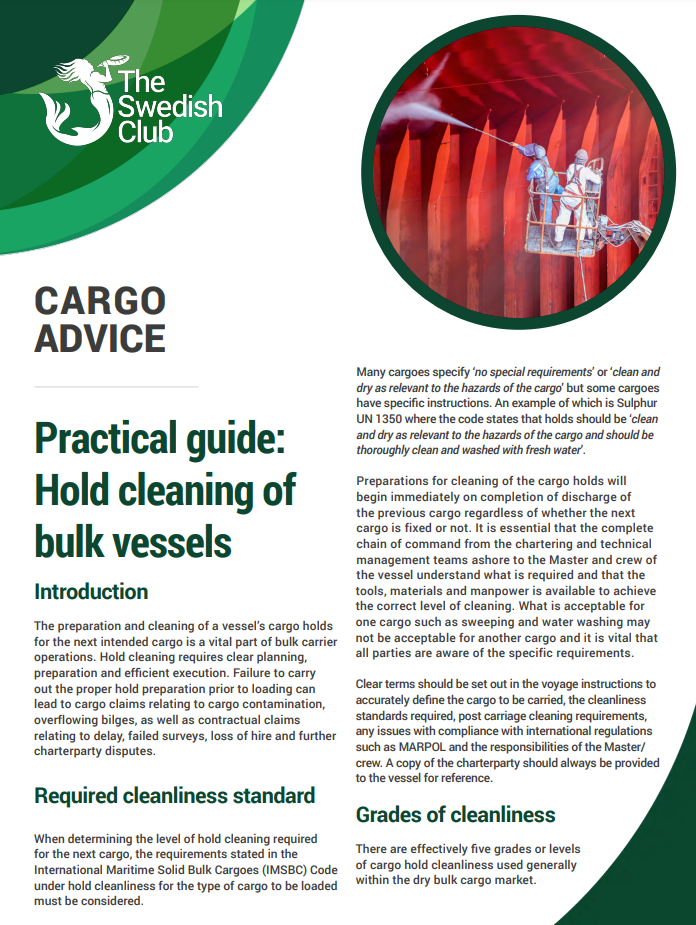
Hold cleaning
The preparation and cleaning of a vessel’s cargo hold for the next intended cargo is a vital part of bulk carrier operations. Hold cleaning requires clear planning, preparation and efficient execution. Failure to carry out the proper hold preparation prior to loading can lead to cargo claims relating to cargo contamination, overflowing bilges as well as contractual claims relating to delay, failed surveys, loss of hire and further Charterparty disputes.
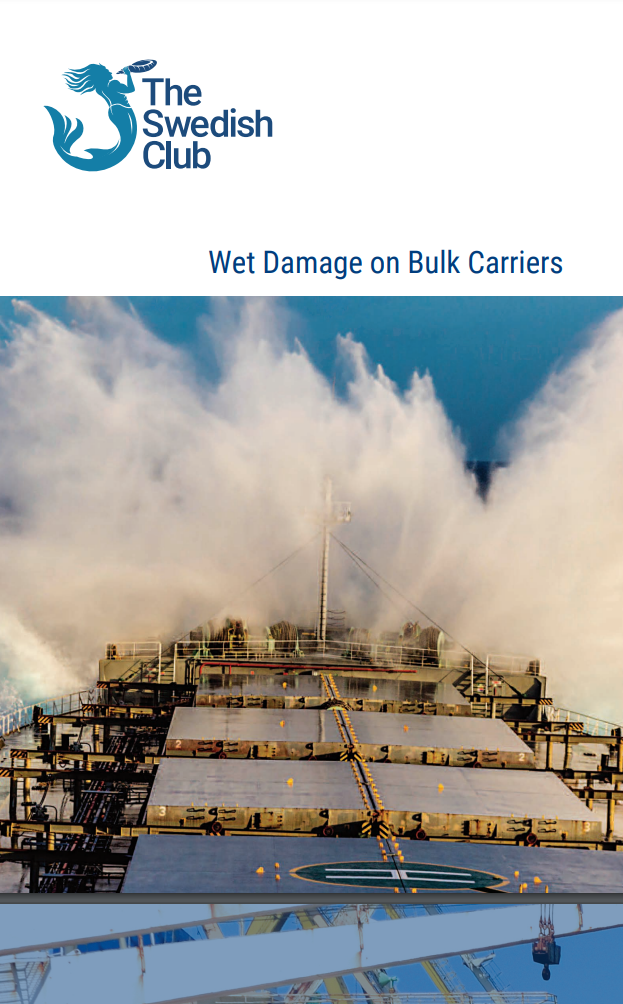
Wet Damage on Bulk Carriers

Fire! A guide to the causes and prevention of cargo fires
When a fire breaks out on board a vessel there is no fire service ready to assist in extinguishing it – it is up to the crew themselves. The consequences can be catastrophic, and all those who have worked on board a vessel are aware of the difficulties involved with managing a fire and the crucial importance of fire prevention. The information in this handbook is designed to assist shipowners and crews in those fire prevention efforts.
Case Studies
IG Letters of Indemnity
The IG standard form Letter of Indemnity (LOI) wordings may be downloaded below: